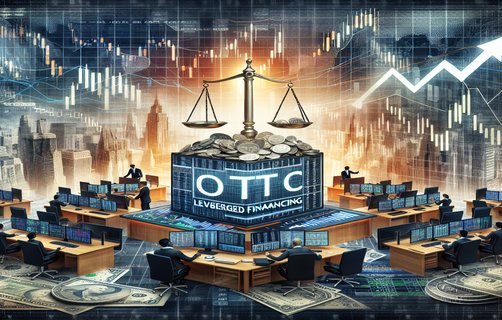
In a landscape where digital arenas collide with sustainable innovation, an electrifying paradigm emerges—one where complexity and creativity coalesce into profit-driven sustainability. Our journey begins in an unexpected terrain where clusters of data, digital gameplay, and eco-conscious business strategies create a new blueprint for success.
At the heart of modern digital systems lies the concept of the cluster. In many high-stakes environments, clusters refer to collections of similar or synergistic data points that enhance computational efficiency, streamline processes, and uncover previously hidden relationships. Within digital betting and gaming, clusters can be utilized to organize and analyze player behavior, granting businesses the ability not only to customize experiences but also to optimize reward mechanisms in real time. The efficient functioning of a cluster mirrors that of a sustainable ecosystem: each component contributes to the whole, ensuring agility and iterative improvement.
This notion dovetails seamlessly with the idea of winningspread. Winningspread in digital systems refers to the distribution mechanism of rewards across a broad player base, balanced to maintain engagement and maximize excitement while safeguarding the longevity of the platform. Many companies are now looking to implement winningspread strategies that adhere to sustainability principles by ensuring that the rewards system stimulates continuous engagement without inciting wasteful practices. The clever distribution of winnings not only intrigues the modern player but also embeds within systems an evaluative metric that is inherently sustainable by incentivizing responsible behavior.
Parallel to these strategies is the fine-tuned process of sessionmanagement. In the digital reward universe, session management involves the careful oversight of user interactions from login to logout, tracking the intricacies of each user’s journey. Effective session management is a testament to the balance between profitability and longevity. It ensures that each player's engagement is logged, analyzed, and refined, thereby enabling businesses to deliver personalized experiences that are both efficient and ecologically considerate. Much like energy conservation in sustainable practices, managing sessions wisely reduces resource waste and boosts overall system performance.
Balancedwinnings is another critical concept. To echo the importance of fairness in both digital gaming and nature, balanced winnings aim to maintain stability in payout structures. A balanced system distributes benefits equitably, ensuring no single entity—or gaming segment—dominates to the detriment of the ecosystem. Such equitable distribution promotes sustained participation, reflecting modern business models that value long-term relationship building over short-term gains. Sustainable business innovation requires a similar approach: investments must be balanced between immediate returns and future growth, nurturing an environment where resource renewal and profitability coexist harmoniously.
In the intricate design of these systems, the concept of rewardpayout represents the final calibration of output to performance. Reward payout mechanisms not only determine the immediate gratification of the end user but also serve as a feedback loop to the system's overall health. Just as renewable energy systems encourage continuous adaptation to environmental inputs, well-calibrated rewardpayout routines encourage players to progress, innovate, and remain engaged. This virtuous cycle of input and return exemplifies how sustainable practices in digital environments can translate to business excellence.
Variablebetting philosophy adds an intriguing layer of dynamism to the mix. Instead of a one-size-fits-all approach, variable betting allows for flexible wagering based on real-time variables such as user performance, risk appetite, and previous interaction profiles. By employing variable betting strategies, companies can adjust offers dynamically, which not only spices up the user experience but also reflects adaptive business practices. In the era of sustainable innovation, variable betting is akin to adaptive resource management—ensuring that every investment or payout meets the evolving needs of the marketplace and the individual.
Bridging these advanced gaming strategies with the broader context of sustainability and business innovation, companies face the exciting challenge of steering two seemingly disparate fields towards a common goal. By integrating digital rewards systems with sustainable strategies, businesses can drive positive change while remaining profitable. The lessons learned in optimizing clusters, managing winningspread, perfecting session management, ensuring balanced winnings, calibrating rewardpayout, and implementing variable betting do not merely apply to digital gaming—they offer insights into how traditional businesses can structure reward systems, customer engagement, and growth strategies in a responsible manner.
In an era where businesses are urged to look beyond immediate financial metrics and embrace long-term, sustainable practices, the interplay between digital gaming innovations and sustainable management offers a futuristic roadmap. Companies that master this correspondence are likely to see not only increased profitability but also a loyal customer base that values both reward and responsibility. As the world faces escalating environmental concerns, the drive to innovate sustainably is not just a corporate responsibility—it is an economic imperative.
Interactive Questions:
1. How do you think digital reward systems can contribute to long-term sustainability in businesses?
2. Which aspect of the strategies discussed (cluster, winningspread, session management, balanced winnings, reward payout, variable betting) do you find most applicable to sustainable practices?
3. Can adaptive systems like variable betting serve as models for sustainable resource management in traditional industries? Why or why not?
4. What additional measures would you propose for integrating eco-friendly practices into digital gaming platforms?
FAQs:

Q1: What exactly is a cluster in a digital gaming context?

A1: A cluster is a group of interconnected data points or systems that work together to optimize processes such as user data analysis, reward distribution, and system efficiency.
Q2: How does balanced winnings contribute to sustainability?
A2: Balanced winnings ensure equitable distribution of rewards, fostering a stable and long-term user engagement strategy that minimizes resource waste and encourages responsible use.
Q3: What role does variable betting play in modern digital systems?
A3: Variable betting allows dynamic adjustment of bets based on real-time factors, enhancing user experience and creating a system that mirrors adaptive management practices seen in sustainable resource allocation.


Comments
Alice
Fascinating insights! Combining digital gaming strategies with sustainability is a truly innovative approach.
张伟
The explanation of session management and balanced winnings was both clear and thought-provoking. Great read!
John
I love the idea of adaptive systems reflecting sustainable practices. Digital rewards can indeed drive positive change.
李娜
This article wonderfully bridges the gap between technology and sustainability. The interactive questions made me reflect on my own ideas.